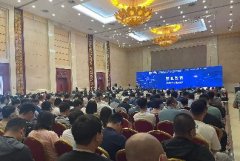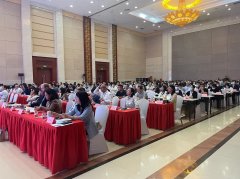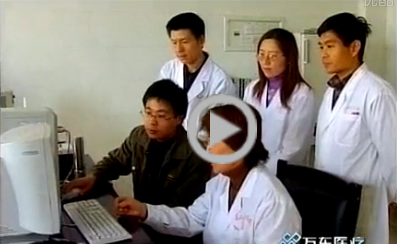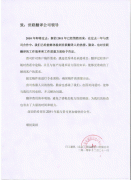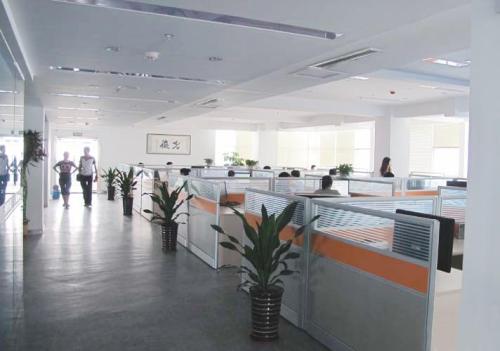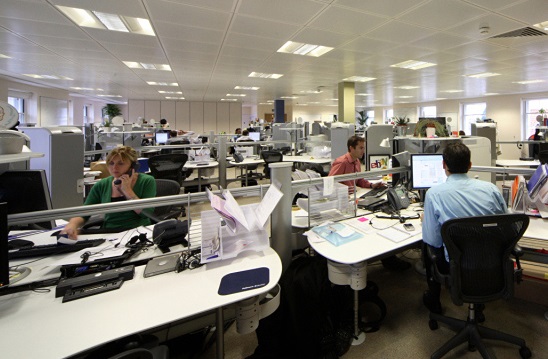老外质问:难道我为工作而生?!
时间:2018-04-26 17:45 来源:未知 作者:dl 点击:次
我的朋友圈里经常会看到“周末加班累成狗”、“凌晨一点了,终于把策划写完了”等类的话,为了挣钱养活自己,大家都蛮拼的......
以下是Global Times (Metro Shanghai)近期刊登的一篇评论,配有中文翻译。 最近,一枚来自意大利的汉子给我们投稿,发出了来自心灵的叩问:我们究竟是为了生活而工作,还是为了工作而生活?
Do we have to work to live or live to work? How many times has this sentence been heard and what is the right answer? Since humanity created the first societies, it was understood that we needed to work to receive services, but we often forget that work is needed to allow us to have the money to carry on our passions. Work creates stress that has been recognized as a real disease; if our brain is not relaxed it risks getting sick. 我们究竟是为了生活而工作,还是为了工作而生活?这已经是老生常谈,但谁能给出正确答案?自从人类社会的出现,我们对只有工作才能享受服务习以为常,恰恰忘了我们的激情需要用工作中挣的钱来维持。源于工作中的压力已被认为是一种疾病,如果我们的大脑不能得到足够放松的话,身体就会出问题。 In Europe, we know that the people from East Asia are great workers, especially in the three most powerful nations: China, Japan and South Korea. When I first came to China, I was pleasantly surprised by the difference between Chinese and European workers in small shops and I carefully watched how Chinese people approached the work. 在欧洲,来自东亚的人被认为是最优秀的员工,尤其是来自中、日、韩三国的人。当我第一次到中国时,我很惊讶地看到中国和欧洲的人在小店里工作时的差别,我仔细地观察中国人是如何工作的。 I remember it was a cold winter but all of the shop's doors were wide open, the workers were on the sidewalk and only those who did a job that was possible to sit down had a small heater to warm their legs. This surprised me a lot, but I soon realized that with this method they immediately created a direct relationship with the potential buyer who first observes how the worker prepares the product or performs the service and then eventually buys it. 我记得那是个寒冬,所有商店的门都是敞开的,人们都在人行道上卖东西(自行脑补煎饼果子摊、手抓饼摊~),只有那些能坐下来工作的人有一个小加热器来取暖。这让我很吃惊,但我很快意识到,通过这种方式,潜在消费者能更直观地看到他们如何准备商品,以及如何为顾客提供服务,最终潜在消费者很可能会被他们的行为打动,并且购买产品。 In Europe, we are enclosed in our comfortable and heated shops and often we work in the back room, so we have perhaps a more detached relationship with the customers. In China I often stop to browse among bakers who prepare youtiao, fried dough strips served for breakfast, in the morning, cooks who make noodles or shoemakers who fix shoes. 在欧洲,我们在温暖舒适的店里工作,甚至是在里屋,我们和顾客联系甚少。在中国我经常停下来观察街边炸早餐油条的师傅,煮面的厨师以及修鞋的鞋匠。 In beautiful, crowded Shanghai, the work is different because this is an international and super-modern city. Here the work has evolved, so many jobs are related with computer technology, with fashion, with high-class restaurants or with architecture. My wife has worked in Shanghai for a long time and has become an important manager of her company. I'm very proud of her and her salary is really good, but there are some downsides. 在繁华拥挤的上海,工作种类繁多,毕竟这是个国际化而且现代化的大都市。在这里,许多工作发生了转变,它们和计算机技术、时尚、高档餐厅、建筑等不可分割。我妻子在上海工作了很长一段时间,已经成为了公司的一位重要的经理,她的收入很可观,我为她感到骄傲,但,随之也产生了一些问题。 Having to manage many people, when we are walking or on vacation, she has to leave for an hour or two to send messages, reply to e-mails and share data with her collaborators. Otherwise, I'm a simple employee, I have a normal salary that satisfies me and I don't aim to become a senior manager. This is because I have lots of hobbies and I can not bear that my work comes between me and what I like. 因为她必须管理很多人,所以当我们在散步或度假时,她总得抽出一两个小时来发信息、回邮件以及与合伙人共享数据等,而我只是一个普通员工,有一份稳定收入可以养活自己,我也不打算成为一个高级经理,因为我有很多爱好,我不能忍受工作干扰我做喜欢的事。 Who is right? Strangely, both of us, because we both love our jobs. An old saying says "Choose a job you love, and you'll never have to work a day in your life." One day, after I complained that my wife spent too much time with her eyes on her smartphone, she told me: "I want to be the best and to be the best you have to work hard." 到底谁是对的呢?我们都是,因为我们都热爱自己的工作。俗话说得好“选个你热爱的工作,每天都不像在工作~”有一天我和妻子抱怨说她眼睛一刻也离不开手机,她说:“要想做到最好,就得努力工作。” I have the same opinion, but I think it is always necessary to set priorities. Work can not come before the needs of the children or a phone call to our parents or even just a sunset on the West Lake in Hangzhou of East China's Zhejiang Province. Lately, too many people look at their phones during dinner at a restaurant, and this is very sad. 这我赞同,但凡事也得分先后,比如工作不能比陪伴孩子,或者打电话给父母,甚至是欣赏西湖边的日落更重要。最近,很多人在餐馆吃晚饭都要盯着手机看,这真令人感到难过。 People who work too much are called workaholics or "Stakhanovites." This word comes from Aleksei Grigoryevich Stakhanov, a miner in the 1930s, based on a method to increase the speed of coal mining. He was a hero in the former Soviet Union and an example to follow because work can make us proud and satisfied. 工作太多的人被称作工作狂或者"Stakhanovites"。这是一个来自于20世纪30年代的一位矿工Aleksei Grigoryevich Stakhanov基于提高采煤速度的一种方法提出的词。他是前苏联的英雄,是一个值得效仿的榜样,因为工作可以让我们感到骄傲和满足。 But we must not forget the alarming fact of the 2000s, the progressive increase of guolaosi (those who died from too much work). 但我们不能忘记本世纪初一个令人担忧的事实:过劳死事件的增加(因为工作量过大而死亡)。 So, to answer the question at the beginning of the article, I have chosen and I am lucky to be able to work to live and I spend the rest of the time to enjoy my life. 所以,作为文章一开头的提问的回答,我必须选择并且我很庆幸能够为生活而工作,在除工作以外的时间里,我会好好享受生活。
你同意这位意大利小哥哥讲的道理吗?你是如何权衡工作和生活的关系呢?欢迎在下方留言告诉我们哦~ 世联翻译-让世界自由沟通!专业的全球语言翻译供应商,上海翻译公司专业品牌。丝路沿线56种语言一站式翻译与技术解决方案,专业英语翻译、日语翻译等文档翻译、同传口译、视频翻译、出国外派服务,加速您的全球交付。 世联翻译公司在北京、上海、深圳等国际交往城市设有翻译基地,业务覆盖全国城市。每天有近百万字节的信息和贸易通过世联走向全球!积累了大量政商用户数据,翻译人才库数据,多语种语料库大数据。世联品牌和服务品质已得到政务防务和国际组织、跨国公司和大中型企业等近万用户的认可。 |








